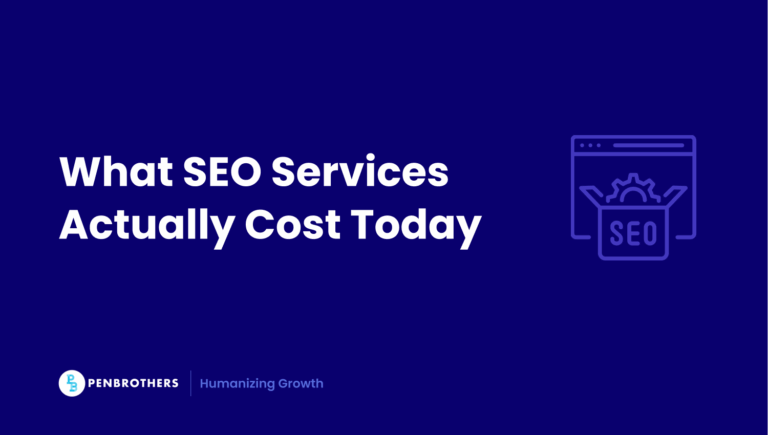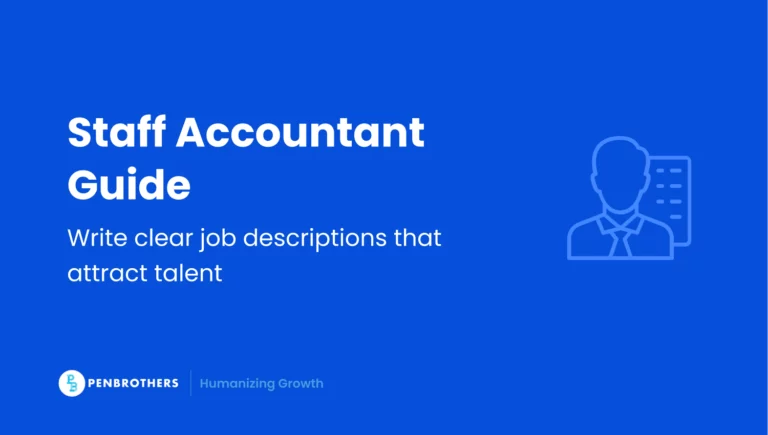A job interview is not just about answering questions. It’s also your opportunity to evaluate the company and role. Asking the right questions can uncover critical details about workplace culture, career growth, and potential challenges that may not be immediately apparent.
Many candidates overlook this step. The reality is that many job applicants miss out on valuable insights that can help them make an informed decision. Asking thoughtful questions also demonstrates strategic thinking, positioning you as a proactive candidate.
This guide covers 9 essential questions to ask HR, ensuring you gain a clear understanding of the job, the company, and your long-term opportunities.
Key Takeaways
- An Interview is a Two-Way Evaluation: A job interview is not just about the company assessing you; it is equally your opportunity to assess the company and the role. Asking thoughtful questions is the primary way to gather the information needed to make an informed career decision.
- Strategic Questions Make You a Standout Candidate: Asking insightful questions about the role, culture, and company challenges does more than just provide you with information. It demonstrates to the hiring team that you are a proactive, engaged, and strategic candidate, which can set you apart from the competition.
- Categorize Your Questions for a Comprehensive View: To get a full picture of the opportunity, you should prepare questions that cover three key areas: the specifics of the role and its day-to-day expectations, the company culture and leadership style, and the available opportunities for career growth and professional development.
- Listen for Red Flags in the Responses: How an HR representative answers your questions is as important as what they say. You should be alert for potential red flags, such as vague or evasive answers about important topics like employee turnover, career advancement, or work-life balance, as this can indicate deeper issues within the organization.
Why Asking HR the Right Questions Matters
Turning an Interview into a Meaningful Conversation
An interview should be a two-way discussion where you assess the company as much as they assess you. Thoughtful questions can:
- Provide clarity on job expectations beyond what is written in the job description.
- Offer insights into company culture, leadership style, and values.
- Help you identify red flags that could signal future job dissatisfaction.
- Make you stand out as a well-prepared and strategic candidate.
Related: How to Reply to a Job Interview Invitation
Recognizing Red Flags in HR’s Responses
Sometimes, HR’s answers may be vague or overly generic. This can be a sign of deeper issues within the organization. Watch for:
- Unclear career advancement opportunities.
- Evasive responses about employee turnover rates.
- Inconsistent or conflicting statements about work-life balance.
If you notice any of these warning signs, follow up with more detailed questions. A company that values transparency will provide clear and honest answers. Now that you understand the importance of asking HR the right questions, the next step is preparing them effectively.
How to Prepare the Right Questions for HR
Research the Company and Role in Advance
The best questions come from a strong understanding of the company. Before your interview, research:
- The company’s mission, values, and long-term goals.
- Recent news, expansions, or major changes within the organization.
- Key competitors and industry trends.
Being informed allows you to ask meaningful questions that demonstrate genuine interest in the company.
Tailoring Questions to Your Career Stage
Not all candidates should ask the same questions. Customize them based on your experience level:
- Entry-Level Candidates: Ask about onboarding, training programs, and performance expectations.
- Mid-Career Professionals: Focus on career growth, leadership styles, and team dynamics.
- Senior-Level Applicants: Inquire about company strategy, decision-making processes, and leadership expectations.
Industry-Specific Considerations
Different industries have unique challenges and expectations. Tailor your questions accordingly:
- Technology: How does the company support ongoing skill development and innovation?
- Sales: What measures are in place to prevent employee burnout?
- Finance: How does the company handle regulatory changes and economic shifts?
Related: How to Maximize a Mock Interview
By preparing well-structured and industry-relevant questions, you will gain deeper insights into whether the company is the right fit for you. Now, let’s explore the 10 essential questions to ask HR.
9 Must-Ask Questions for HR
About the Role and Expectations
1. Can you describe a typical day in this role?
This question helps clarify daily responsibilities beyond the job description. It also provides insight into workload, collaboration, and key priorities.
2. How is success measured for this position?
Understanding performance expectations will help you determine how your work will be evaluated and what key performance indicators (KPIs) you will be responsible for.
3. What are the biggest challenges someone in this role is likely to face?
Knowing the common hurdles of the position helps you assess whether you are well-equipped for the role and how the company supports employees in overcoming these challenges.
About Company Culture and Leadership
4. What do you enjoy most about working here?
Hearing HR’s personal perspective can give you an authentic sense of the work environment and company culture.
5. How would you describe the company’s culture?
A well-defined company culture promotes engagement and retention. This question will help you determine if the work environment aligns with your values and work style.
6. How does the company handle feedback and employee concerns?
This question provides insight into how open and responsive the organization is to employee input, which is crucial for long-term job satisfaction.
7. Can you share an example of how leadership supports employee well-being and work-life balance?
Rather than a generic response about policies, this question encourages HR to provide real-life examples of how leadership actively promotes a healthy work environment.
About Career Growth and Challenges
8. What career development opportunities does the company offer?
A company that values its employees invests in their growth. This question will help you assess training programs, mentorship opportunities, and pathways for advancement.
9. What are the biggest challenges the company or team is currently facing?
Understanding workplace challenges provides insight into stability, leadership, and future growth opportunities. It also shows whether the company is transparent about potential obstacles.
Now that you have a strong set of questions to ask, it’s equally important to know how to ask questions to HR with real tips you can try out.
Bonus Tips: How to Ask Better Questions to HR
1. Use the “Layered Questioning” Technique for Deeper Insights
Most candidates ask broad, surface-level questions that lead to rehearsed responses. To get more meaningful answers, structure your question in layers.
2. Frame Questions Around Challenges, Not Just Features
Companies love talking about perks, but real insights come when you ask about obstacles. This method helps you assess transparency, work environment, and growth opportunities.
3. Ask for Comparisons to Uncover What Makes the Company Unique
HR interviews often focus on why the company is a great place to work, but without comparison, their answers lack context. A comparison-based question makes it easier to identify if the company’s values truly align with your career goals.
4. Make Your Questions Conversational, Not Interrogative
HR interviews should feel like an engaging discussion, not a rigid Q&A session. The way you phrase your questions impacts the depth of the response.
5. Close with a Strategic Reflection Question
End your interview by asking a question that leaves a lasting impression. This gives HR a chance to offer additional insights while reinforcing why you’d be a great fit.
By asking thoughtful, well-structured questions, you gain a clearer picture of the company while positioning yourself as a proactive, insightful candidate. Now, let’s tackle some frequently asked questions about HR interviews.
HR Interview Questions You Should Ask in Your Next Job Application
Conclusion: Be Strategic, Be Memorable
Ask yourself: Are you ready to set yourself apart by asking the questions that matter? Companies are looking for candidates who know what they want and can engage in meaningful conversations about that delve into the role, the culture, and match expectations and realities. By asking the questions listed in this guide, you’ll show that you’re not just looking for any job. You’re looking for the right job where you can thrive.
To ensure you are fully prepared, download our HR Interview Question Checklist and approach your next interview with confidence. If you’re looking for growth-focused career opportunities like Jitka, check out open roles with attractive salaries, benefits, and flexible work arrangements.
Frequently Asked Questions
To understand the role beyond the basic job description, you should ask questions like, “Can you describe a typical day in this role?”, “How is success measured for this position?”, and “What are the biggest challenges someone in this role is likely to face?”
To get a genuine sense of the company culture, you can ask direct and experience-based questions. Good examples include, “How would you describe the company’s culture?”, “What do you enjoy most about working here?” and asking for a specific, real-life example of how the company’s leadership supports employee well-being.
You should avoid questions that could be seen as premature, unprofessional, or that show a lack of basic research. This includes asking about salary and benefits too early in the interview process, asking questions that could be answered by visiting the company’s website (e.g., “What does your company do?”), and asking highly personal questions of the interviewer.
It is a good practice to prepare at least five to seven thoughtful questions. However, you should prioritize asking your top three or four most important ones, depending on how the conversation flows and how much time is available at the end of the interview.
If an HR representative consistently provides vague answers or avoids direct questions on key topics, such as employee turnover rates or company stability, it could be a red flag. This may indicate a lack of transparency within the organization, which is an important factor to consider when deciding if the company is the right fit for you.






